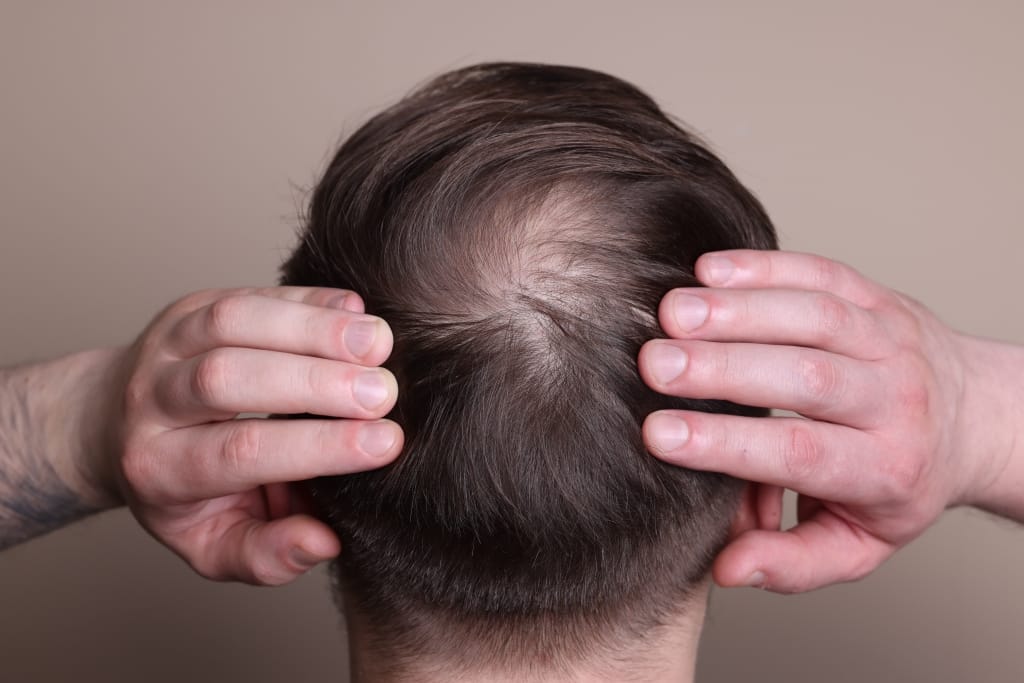Thinning hair can be a frustrating and emotional experience, affecting confidence and overall well-being.
While it’s natural for hair to go through growth cycles and shedding, excessive thinning can often signal underlying factors like stress, nutritional deficiencies, hormonal imbalances, or even environmental stressors.
The good news is that you don’t always need to rely on harsh chemicals or expensive treatments to address this concern.
Natural remedies offer effective and gentle solutions that support healthy hair growth and restore vitality to your locks.
If you’ve been searching for ways to nourish your hair and regain its fullness, read on to discover simple, yet powerful methods to help transform your hair naturally.
1)) Scalp Massages
Scalp massages are a simple yet highly effective way to stimulate hair growth and improve overall scalp health.
By massaging your scalp regularly, you increase blood circulation to the hair follicles, ensuring they receive the essential nutrients and oxygen needed for healthy growth.
Scalp massages can help reduce stress and promote relaxation, which may counteract some of the factors that contribute to hair thinning.
Using natural oils, such as coconut oil, argan oil, or castor oil, during your massage can enhance the benefits by providing hydration and nourishment to both the scalp and hair.
Incorporating this soothing practice into your routine can be a powerful step toward supporting thicker, healthier hair.
2)) Coconut Oil Scalp Massage
Coconut oil has long been celebrated for its nourishing and restorative properties, making it an excellent choice for a scalp massage.
Rich in essential fatty acids and vitamins, coconut oil penetrates deeply into the scalp, providing hydration and reducing dryness or flakiness.
Its natural antimicrobial properties can help combat issues like dandruff, which may contribute to hair thinning.
Massaging coconut oil into your scalp not only enhances blood circulation but also strengthens the hair shaft, reducing breakage and promoting a healthier environment for hair growth.
Including coconut oil scalp massages in your self-care routine can significantly improve your hair’s texture and vitality over time.
3)) Aloe Vera Treatment
Aloe vera is renowned for its soothing and healing qualities, making it an excellent natural remedy for improving scalp health and promoting hair growth.
Packed with vitamins A, C, and E, as well as essential enzymes, aloe vera helps to repair dead skin cells on the scalp while reducing inflammation and irritation.
Its moisturizing properties ensure that the scalp remains hydrated, combating dryness and creating an ideal environment for healthy hair follicles.
Regular use of aloe vera can also help reduce excess oil production, restoring balance and preventing clogged hair follicles.
Incorporating aloe vera treatments into your hair care routine can play a pivotal role in fostering stronger, more vibrant hair.
4)) Onion Juice Application
Onion juice is a powerful natural remedy for promoting hair growth and combating hair thinning.
Rich in sulfur, onion juice helps boost collagen production, which is crucial for regenerating hair follicles and supporting healthy hair structure.
The antimicrobial properties of onion juice also aid in maintaining a clean and balanced scalp, reducing dandruff and other scalp-related issues that can hinder hair growth.
Applying fresh onion juice to your scalp allows its nutrients to penetrate deeply, strengthening the roots and encouraging new hair growth.
Making onion juice application a regular part of your hair care routine can lead to noticeable improvements in hair thickness and strength.
5)) Rosemary Oil Use
Rosemary oil is a revered natural remedy known for its ability to stimulate hair growth and improve scalp health.
Rich in antioxidants and anti-inflammatory properties, rosemary oil helps combat hair thinning by boosting blood circulation to the scalp and encouraging the delivery of essential nutrients to hair follicles.
Its antimicrobial benefits also work to reduce scalp issues like dandruff or itching, creating a healthier environment for hair growth.
Regularly massaging a few drops of diluted rosemary oil onto your scalp can strengthen hair from the roots, improve its texture, and promote overall thickness, making it a valuable addition to your hair care routine.
6)) Green Tea Rinse
Green tea is packed with powerful antioxidants and nutrients that can significantly benefit your hair and scalp.
Its high levels of catechins help reduce dihydrotestosterone (DHT), a hormone linked to hair thinning, while also strengthening hair roots and stimulating growth.
The anti-inflammatory properties in green tea can soothe the scalp, reducing irritation and promoting a healthy environment for hair follicles.
A green tea rinse not only revitalizes your hair but also adds shine and softness.
Making green tea rinses a consistent part of your hair care regimen can support healthier, more resilient hair over time.
7)) Essential Vitamins
Essential vitamins play a crucial role in maintaining healthy hair and supporting its growth.
Vitamins such as biotin (Vitamin B7), Vitamin D, and Vitamin E are particularly important for preventing hair loss and strengthening the hair shaft.
Biotin helps produce keratin, a fundamental protein for building strong hair, while Vitamin D promotes the health of hair follicles.
Vitamin E is known for its antioxidant properties, which protect hair from environmental damage and enhance scalp circulation.
Ensuring a diet rich in these key vitamins or supplementing when necessary can significantly contribute to achieving stronger, shinier, and more resilient hair.
8)) Consume A Balanced Diet
A balanced diet is fundamental for supporting overall hair health and growth.
Nutrient-rich foods such as leafy greens, nuts, lean proteins, and whole grains provide the essential vitamins and minerals required to strengthen hair and promote optimal follicle function.
Omega-3 fatty acids, found in foods like salmon and flaxseeds, are especially beneficial for maintaining scalp hydration and reducing inflammation that can hinder hair growth.
Proteins, the building blocks of hair, ensure the production of keratin, while antioxidants from fruits and vegetables protect hair from oxidative stress.
Prioritizing a balanced and nutrient-dense diet can lead to stronger, shinier, and healthier hair over time.
9)) Avoid Heat Styling
Heat styling tools such as flat irons, curling wands, and blow dryers can cause significant damage to your hair over time.
The high temperatures weaken the hair’s natural protein structure, leading to dryness, breakage, and split ends.
Excessive heat can also strip moisture from the hair, making it brittle and less elastic.
Minimizing the use of heat styling tools and incorporating heat-free alternatives like air-drying or using rollers can help protect your hair's health.
Using a heat protectant spray whenever styling with heat is unavoidable can also reduce damage.
Prioritizing hair-friendly practices will help maintain stronger, healthier, and more resilient hair in the long run.
10)) Stress Management Techniques
Stress management techniques are essential for maintaining not only mental well-being but also healthy hair, as chronic stress is a known factor in hair loss.
Techniques such as meditation, yoga, deep breathing exercises, and regular physical activity can help lower cortisol levels, the hormone often associated with stress-related hair problems.
Allocating time for hobbies or practices that bring joy can also play a key role in reducing stress.
Ensuring a good night's sleep and maintaining a consistent sleep schedule can help the body recuperate and support hair health.
Incorporating these stress-reducing habits into your lifestyle encourages a more balanced mind and body, which can lead to stronger and healthier hair.
11)) Proper Hair Washing Practice
Proper hair-washing practices are essential for maintaining a clean and healthy scalp, which serves as the foundation for strong and vibrant hair.
Overwashing your hair can strip it of natural oils, leading to dryness and breakage, while under-washing can cause a buildup of dirt and oils, clogging hair follicles.
Using a gentle shampoo that matches your hair type and thoroughly rinsing ensures that no residue remains, preventing scalp irritation.
Washing hair with lukewarm water instead of hot water helps preserve the hair's natural moisture balance.
Adopting these practices as part of your routine can support cleaner, healthier, and more resilient hair over time.
Conclusion
Achieving and maintaining healthy, resilient hair requires a combination of proper care, a nutrient-rich diet, healthy lifestyle practices, and mindful habits.
From incorporating essential vitamins and managing stress to adopting gentle hair-washing techniques and minimizing heat styling, every step plays a role in promoting hair strength and shine.
By making thoughtful adjustments to your daily routine and prioritizing the well-being of your hair and scalp, you can enjoy the benefits of stronger, shinier, and more vibrant hair for years to come.
Download Our Free E-book!








